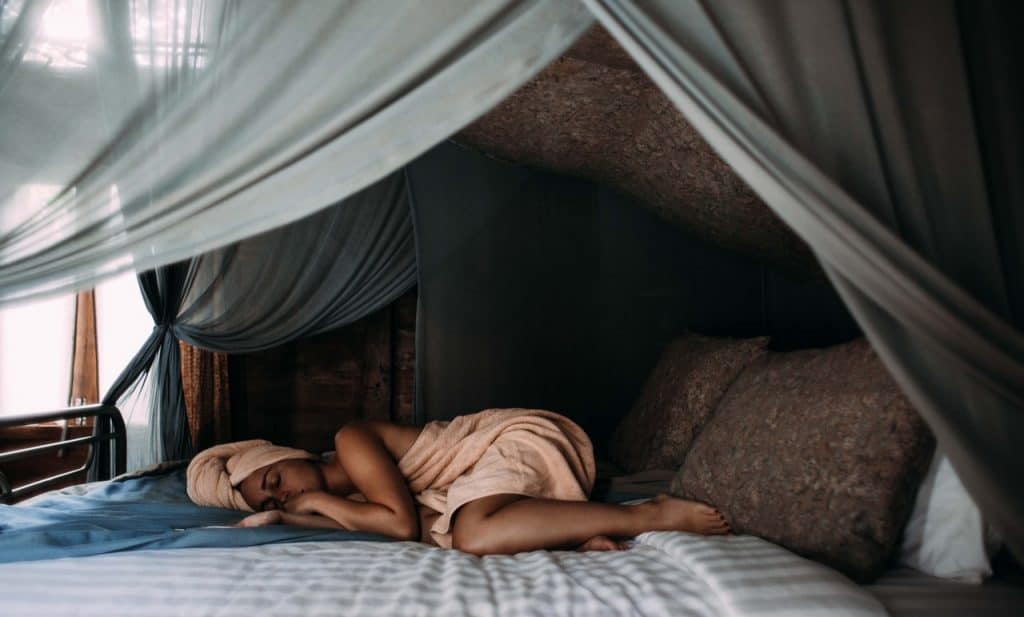Table of Contents
ToggleWhy a Good Nights Sleep is SO Important Your Health
We all know that sleep is important for our health. But, sometimes it can be difficult to get the amount of quality sleep we need. Whether you are suffering from insomnia or just want some tips on how to better your sleep habits, this blog post will help!? We’ll discuss what good and bad sleep looks like, how much sleep you should be getting each night, and give some great tips on how to get a better nights rest.
What is sleep?
Sleep is a natural state of the body in which the mind and body come to rest. During sleep, your heart rate, breathing, temperature, blood pressure, and metabolism all slow down (or “go down”) slightly. Sleep is most refreshing when you give your body adequate time for sleep each night. If you sleep too little or sleep poorly one night, it takes time for your body to return to its normal rhythm. The amount of sleep people need varies by age; most adults require seven to eight hours per night. Some people may need more or less than this depending on their age and lifestyle factors such as stress levels and caffeine intake.
How sleep problems can affect your health
There are many sleep disorders that may interfere with sleep. If you sleep less than the recommended minimum of seven to eight hours per night you may be suffering from sleep deprivation, this can affect your overall health and well-being in both the short term (e.g., drowsy driving) and long term (e.g., risk of obesity, diabetes, heart disease).
What is normal sleep?
Sleep has two different phases: rapid eye movement sleep (REM sleep), which is associated with dreaming; and non-rapid eye movement sleep (NREM or “deep” sleep), which lacks vivid dreams but is still important for good mental health. These two types of sleep alternate throughout night as you cycle through periods of sleep and wakefulness.
How much sleep should you be getting?
Most adults need seven to eight hours of sleep per night, though some people may require more or less sleep than the average. The amount of sleep needed per night is most likely determined by genetics; however people can train themselves to sleep better (e.g., limiting your caffeine intake). If you are considering changing your sleep schedule, make sure that there aren’t any underlying medical conditions causing your sleep difficulties; otherwise it can cause further health problems if not taken care of.
Should I sleep longer on weekends?
There’s no need to sleep longer at the weekend, unless you sleep less than 5 or 6 hours during weekdays which can make you sleep deprived. If sleep deprivation is not a concern for you, go ahead and sleep in, but do your best to get back into a regular sleep schedule on Monday morning.
Why am I sleeping badly despite sleeping more?
If you sleep longer but still feel tired during the day, there might be an additional problem. You could sleep too lightly or your sleep could be interrupted. For example, sleep apnea disorder is a sleep breathing disorder which leads to sleep disruption and poor sleep quality.
How do I get a better nights sleep?
Take a hot bath with lavender salts to relax your muscles
These salts are renowned for relaxing the nervous system, alleviating skin problems, reducing back pain and aching limbs, easing muscle strain, helping healthy skin recovery, and extracting toxins from the body. Pour 300g of salts into a warm bath and submerge yourself for 40 minutes.
Turn off all electronics at least thirty minutes before bed time
Setting a cutoff time for electronics use can help lessen the sleep-harming impact blue light emitted from cellphones, computers, tablets, and TVs can have on your circadian rhythm and quality of sleep.
Create a relaxing atmosphere in the bedroom by lighting candles and playing calming music
The blue light that is introduced from the screens decreases your magnesium levels, which can make you feel less exhausted and more nervous. To combat this, putting your light out sooner and living by candlelight will actually help you feel calmer earlier in the evening and reset to your natural sleep rhythms.
Set an alarm on your phone or computer so you do not oversleep
Since napping for too long can leave you feeling more sluggish, you’ll probably want to set an alarm. We suggest an alarm that gradually raises in volume because they tend not to jolt someone out of sleep
Avoid caffeine after 3pm, as it will interfere with sleep patterns
A concept that’s verified by several studies: You should never drink coffee in the evening. Caffeine can impair your sleep up to six hours after eating it, amounting to an hour or more missed in slumber, one study found.
Drink chamomile tea before bed for its sedative properties
Drinking chamomile tea before going to bed is certainly worth trying if you want to improve the quality of your sleep. Chamomile tea?contains antioxidants that may promote sleepiness, and drinking it has been shown to improve overall sleep quality.
We hope you have found the advice we’ve given on how to get a better night’s sleep helpful. If so, please share this post with your friends and family who may be struggling with getting quality rest at night. In addition, don’t just read this article – take action! Get yourself to bed now and start sleeping well tonight. Tomorrow will feel amazing as a result of being rested from last night?s deep slumber.








